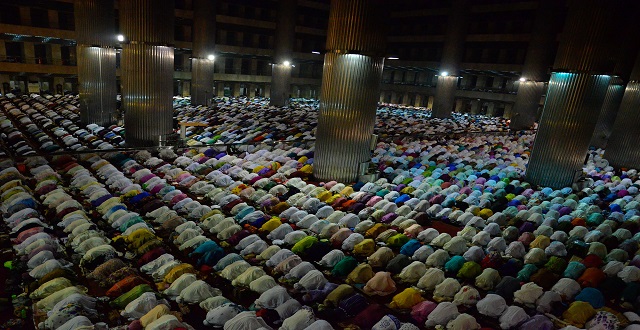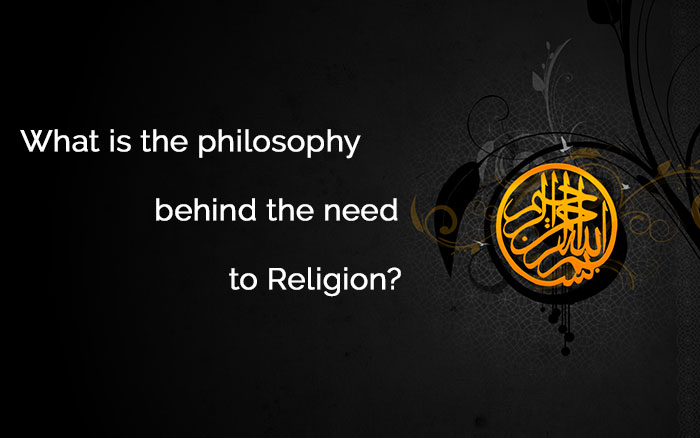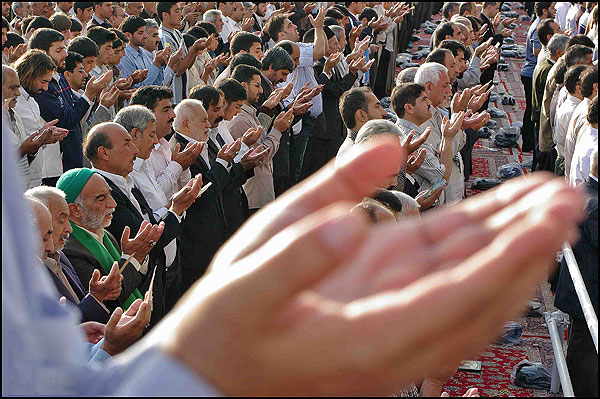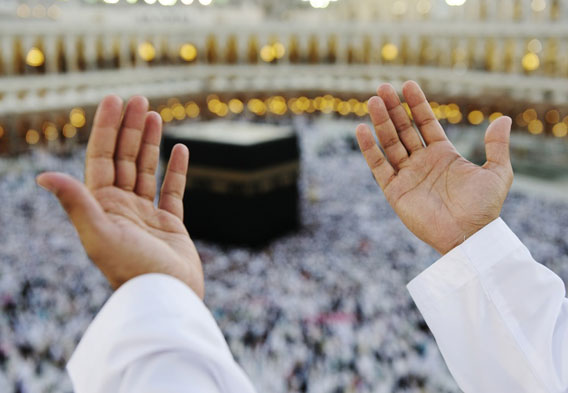What is the philosophy behind “Worshiping”?
 Nowadays some people say: does really Allah need our worship? If we do not worship Him, is He going to be harmed?
Nowadays some people say: does really Allah need our worship? If we do not worship Him, is He going to be harmed?
At first, we should translate the word “Ibadah” which in Arabic means worship.
Ibadah is the very end level of humility of a servant toward his master, to the extent that the servant has no will against the will of his master and he/she is in the complete submission toward the master, the same meaning is applied in our subject. We all are the servants of Allah and His creatures.
Allah said in the holy Quran chapter Zariyat verse 56:
و ما خلقت الجن و الانس الا لیعبدون
“I did not create Jin and Human except to worship me”.
And this was the reason for sending various prophets to different peoples throughout the history.
Allah does not need our worship, because He is out of need of anything and anyone and this is something that has been proved by logical and intellectual argumentations and in fact we are the ones who need Allah and worshiping Him.
Imagine if all people build the windows of their houses back to the sun, does that really harm the sun or the people are the losers of the so much benefits of the sunshine?
Or another example, if the students of a teacher do not study well, does that really harm the teacher or the students are the ones who have deprived themselves from obtaining knowledge?
It is appropriate to say that the sense of worshiping has been in the human since the beginning of the creation of human, but the people sometimes go astray in finding the real instance of worshiping. Sometime they worship idols, or the sun or the moon or sometimes they worship the animals or other things, but the need of worshiping is inside the human.
So let’s look at the philosophy of worship:
The motives for worshiping Allah are as the following:
1) The very high greatness of Allah and the humility that we have toward Him, for example if you enter in the court of a king, unwantedly you start to show your humility toward him. Now compare that example with Allah, the All Mighty being that has created everything and He is the most powerful being and no one can do anything against His will and no one can prevent Him from doing an action. Before such a being, humility is very appropriate and let’s say is obligatory.
2) The second reason is that He is our creator, imagine if someone has given you something as a gift, every time you see him/her, you remember his/her gift and the favor he/she has done to you. So how can we be indifferent to a being that has given us all these favors and bounties, from our existence to different precious limbs of our body, different foods and fruits, the intellect etc. and the worship is a kind of thanksgiving toward Allah.
3) The feeling of dependence and need that we have to Him, makes us worship Him. After we have understood and proved from various intellectual arguments that our existence is given to us by Allah and we are dependent on Him and we are in the utter need to Him, it can make us feel the sense of worshiping Him.
About the philosophies of different kinds of worship in Islam, there is a very important point that I ask you to ponder upon it carefully, and that is, we must not say if I do not know the exact philosophy of a worship, I leave it and do not perform it, because after we have proved through different logical arguments that there is a God and He is the most knowledgeable and the most merciful and the most powerful and wisest and out of need of everything, and everything is in need of Him, we trust such a being and do not ask Him: why did you decree such and such rulings? just like when you know that a doctor is so much expert in his/her field and you visit him/her, you do not ask him/her why did you prescribe such and such medicine? or why did you say to me eat this or do not eat that? and we just trust him/her.
And it is appropriate to remind you that the philosophies of different kinds of worships like prayer, fasting, Hajj, etc. are mentioned in the holy Quran or different Narrations.
—————————–
Sources:
Beytoote.com
Tahoor.com







